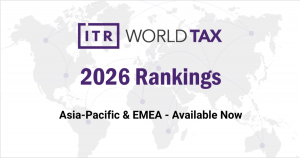Implementation of a new VAT rate at forefront of Indonesian tax updates

The Indonesian government is attempting to improve societal fairness by adjusting VAT rates through a new regulation. The key provisions of Minister of Finance Regulation No. 131 of 2024 (in Indonesian), dated December 31 2024, include the following:
-
The VAT rate is set at 12%, effective from January 1 2025.
-
A differentiation in the tax base (dasar pengenaan pajak, or DPP) between luxury goods and non-luxury goods, services, and intangible goods, as follows:
-
The DPP for luxury goods is the selling price or import value. “Luxury goods”, as referred to in this regulation, include motor vehicles, as regulated in Minister of Finance Regulation No. 42/PMK.010/2022, and non-motor vehicle items, as regulated in Minister of Finance Regulation No. 15/PMK.03/2023. The import value means the cost, insurance, and freight value of the goods concerned, plus import duty.
-
The DPP for non-luxury goods, services, the utilisation of intangible taxable goods from outside the customs territory within the customs territory, and the utilisation of taxable services from outside the customs territory within the customs territory is calculated by multiplying the import value, selling price, or replacement value by 11/12. The effective VAT rate is therefore 11%.
-
-
Specifically for the delivery of luxury goods to end consumers, the new regulation provides a transition period to allow businesses to adjust to the new VAT rate, as follows:
-
From January 1 2025 to January 31 2025, the DPP is 11/12 of the selling price. The value is multiplied by 12% to calculate the VAT payable.
-
Starting February 1 2025, the VAT is calculated using the normal DPP; i.e., the selling price multiplied by the standard rate of 12%.
-
-
For VAT-able goods/services with a tax base determined by other values or a fixed amount under separate minister of finance regulations – including free gifts, liquefied petroleum gas 3 kg, gold jewellery, used motor vehicles, and cryptocurrency – the VAT is calculated according to the provisions set in those regulations.
The regulation became effective on January 1 2025.
New regulation on guidelines for bookkeeping in the customs and excise sector
The Minister of Finance issued Regulation No. 104 of 2024 on December 13 2024, which revokes Minister of Finance Regulation No. 197/PMK.04/2016. The regulation aims at alignment with the development of electronic systems, accommodating the need to collect financial data and information for parties involved in customs and excise activities, and improving the procedures for requesting and conducting bookkeeping in the customs and excise sector.
The key provisions include the following:
-
Bookkeeping is mandatory for individuals or entities acting as importers, exporters, temporary storage area operators, bonded storage area operators, customs service providers, transporters, manufacturers, storage operators, importers of excise goods, distributors that are required to have a permit in the form of an excise goods business identification number, and/or users of excise goods that receive excise exemption facilities.
-
Exemptions from bookkeeping requirements apply to small-scale manufacturers, small-scale distributors required to hold a taxpayer identification number for excise goods entrepreneurs, and retail business operators needing a taxpayer identification number for excise goods entrepreneurs. These entities must instead perform record-keeping.
-
Bookkeeping must be conducted in Indonesia using Latin letters, Arabic numerals, the rupiah currency, and the Indonesian language, or in a foreign currency and language as authorised by the minister of finance.
-
Bookkeeping must be summarised into financial statements prepared and presented according to applicable financial accounting standards in Indonesia at least once a year. These financial statements must be created on paper or electronically and signed by the authorised individual responsible for their preparation.
-
On behalf of the director general, the director in charge of audit functions for customs and excise may request financial statement information from relevant technical units and/or institutions or other information platforms based on risk management. In the event that the financial statement request is not fulfilled within the timeframe stipulated in this regulation, a warning letter may be issued, followed by suspension of customs access and/or freezing of the taxpayer identification number for excise goods entrepreneurs.
The major changes in the new regulation are as follows:
-
The new regulation adds to the parties that are obligated to prepare bookkeeping in the excise sector; i.e., users of excisable goods that are granted the facilities.
-
The new regulation stipulates the penalty for an obligated party that fails to prepare the bookkeeping and/or fails to retain the bookkeeping for up to 10 years.
-
The new regulation also sets forth a special provision on requests for financial reports, which mainly stipulates the following:
-
The Directorate General of Customs and Excise (DGCE) has the right to request information related to the financial report from related units and/or technical agencies, and other information platforms, as well as from the person/company concerned.
-
The request for the financial report from the person/company concerned and submission of the financial report by the person/company can be made through direct submission (in person), courier services, electronic media, and/or the DGCE’s service computer system (Sistem Komputer Pelayanan).
-
The requested financial report should be submitted within seven working days. Failure to do so will result in the DGCE conducting a “services blocking process”; i.e., the issuance of a first warning letter (Surat Peringatan Pertama, or SP1), followed by an SP2 (if the financial report is not provided within three working days after the SP1), and if the financial report is not provided within three working days after the SP2, the DGCE will block customs access and/or freeze the excisable entrepreneur ID number (Nomor Pokok Pengusaha Barang Kena Cukai).
-
The regulation became effective on December 19 2024.
Import duty exemption for goods used in government projects financed by foreign loans and/or grants
Minister of Finance Regulation No. 109 of 2024, issued on December 16 2024, is aimed at supporting the implementation of government projects financed by foreign loans and/or grants, facilitating customs processes, and providing legal certainty and procedural simplification in granting import duty exemptions for goods imported for government projects funded by foreign loans and/or grants.
The key provisions are as follows:
-
An import duty exemption is granted for goods imported for government projects financed by loans and/or grants outside the customs area and bonded logistics centres. The regulation specifies that parties eligible to apply for this facility include ministries or agencies and related regional governments. However, third parties may assist or carry out the release or importation of goods.
-
To obtain the import duty exemption, the relevant institution must submit an application that includes at least the following documents: a budget implementation list, procurement contracts, and a statement letter from the head of the work unit. Applications can be submitted electronically via the Indonesian National Single Window System portal of the DGCE. They will be processed within five hours for electronically submitted applications or one business day for written applications.
-
Article 10 also outlines prohibitions on the misuse of goods granted an import duty exemption. The imported goods will be classified as state-owned or regional-owned goods. Therefore, the goods must be returned (re-exported) or destroyed in cases of misuse, or the applicable import duties must be paid. This rule ensures the facilities are used appropriately and align with the project’s purpose.
The regulation becomes effective on January 22 2025.
Do you want to build your own blog website similar to this one? Contact us








